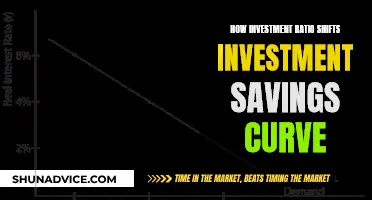
Paying cash for a house has its advantages and disadvantages. On the one hand, it can help you stand out in a competitive market, save on closing costs, and avoid paying interest on a loan. On the other hand, it can tie up a lot of your money in one asset, reducing your liquidity and potentially impacting your ability to cover other expenses.
Taking out a mortgage also has its pros and cons. A mortgage can free up your cash for other investments and help you build your credit score over time. However, it will cost you more in the long run due to interest payments and closing costs.
Ultimately, the decision to pay cash or take out a mortgage depends on your financial situation, risk tolerance, and personal preferences. It's important to carefully consider the risks and benefits of each option before making such a significant financial decision.
| Characteristics | Values |
|---|---|
| Advantages of using cash to buy a home | Beat out other buyers, speed up the homebuying process, save on closing costs, lower your long-term costs |
| Advantages of getting a mortgage to finance a home | Use your money elsewhere, reduce your tax bill, build your credit score |
| Downsides of using cash to buy a home | Tie up a lot of money in one asset class, lose the financial leverage that a mortgage provides, sacrifice liquidity |
| Downsides of getting a mortgage | Mortgages carry interest and closing costs, could be locked into a payback period that lasts decades, could lose your home and damage your credit if you fall behind on payments |
What You'll Learn

Paying cash for a house can save you money on interest and closing costs
Additionally, when you take out a mortgage, you typically pay various fees and closing costs, such as sales commissions, lender fees, and appraisal fees. These costs can amount to thousands of dollars and further increase the overall cost of the home. By paying cash, you can avoid many of these fees, resulting in substantial savings.
Paying cash for a home also provides negotiating power with the seller. Sellers often prefer cash offers because they eliminate the uncertainty associated with financing and reduce the risk of the deal falling through. As a result, sellers may be more willing to negotiate on the price or accept a lower offer from a cash buyer.
Moreover, paying cash for a home can simplify and expedite the home-buying process. With a cash offer, there is no need to wait for loan approvals, appraisals, or other lender requirements. This can be advantageous in a competitive market, where speed and flexibility are crucial.
Finally, paying cash for a home can provide peace of mind and financial stability. Without a monthly mortgage payment, you can reduce your living expenses and increase your financial flexibility. This can be especially beneficial during retirement or periods of financial hardship.
Dogecoin: Worthy Investment or Just a Meme?
You may want to see also

A mortgage can free up cash for other investments
Taking out a mortgage can be a good option if you want to free up cash for other investments. Here are some reasons why:
Retain Liquidity
Taking out a mortgage means you won't have to liquidate a large chunk of your savings or investments to pay for the house upfront. This can be especially beneficial if you're buying a second home or an investment property. Keeping your money in more liquid assets gives you more flexibility to respond to unforeseen financial emergencies or investment opportunities.
Maintain Financial Diversification
A house is an illiquid asset, and buying one with cash could result in you having too much of your investment capital tied up in a single asset class. Financial advisors generally recommend diversifying your investments across different asset classes to reduce risk.
Take Advantage of the Current Interest Rate Environment
If you can get a mortgage at a low-interest rate, it may make more financial sense to invest your money elsewhere. If you expect to earn a higher rate of return on your investments than the interest rate on your mortgage, you could come out on top. For example, the S&P 500 has historically returned an average of 10-11% annually, which is significantly higher than current mortgage rates.
Tax Benefits
In some cases, taking out a mortgage can provide tax benefits. Mortgage interest payments are tax-deductible for homeowners who itemize deductions. Additionally, if you're in a high-income tax bracket, the mortgage interest deduction may provide greater tax savings than the standard deduction.
Access to More Capital
Taking out a mortgage can give you access to more capital, allowing you to purchase a more valuable property than you could with cash alone. This could be beneficial if you're buying a home in a desirable location or one with high potential for appreciation.
Peace of Mind
While buying a house with cash can provide peace of mind by eliminating monthly mortgage payments, taking out a mortgage can also offer peace of mind in other ways. For example, you may worry about tying up too much of your cash in an illiquid asset or missing out on better investment opportunities. A mortgage can help alleviate these concerns by freeing up cash for other purposes.
Young Investors: Why the Reluctance?
You may want to see also

Cash offers are more appealing to sellers
Secondly, cash offers provide more flexibility for the seller in terms of closing speed. A cash buyer can often close the deal much quicker than a buyer who needs to wait for mortgage approval, which is advantageous for sellers who are in a hurry or want a quick sale.
Thirdly, cash offers can be more attractive to sellers because there are typically fewer fees involved. With a cash offer, the seller can avoid lender-related closing costs such as origination fees, resulting in potential savings of thousands of dollars.
Finally, in a competitive market, a cash offer can make a buyer's bid stand out from others that hinge on full lender approval. A seller is more likely to accept an offer that is ready to go and doesn't depend on external financing.
While cash offers have these advantages in a seller's market, it's important to consider the potential downsides for the buyer, such as reduced liquidity, loss of financial leverage, and the opportunity cost of investing the money elsewhere.
GME Investors: Who's In?
You may want to see also

A mortgage can help you build your credit score
There are several advantages to paying cash for a house, including saving on interest and closing costs, and having more liquidity. However, taking out a mortgage can also have its benefits, such as building your credit score. Here are some reasons why a mortgage can help you build your credit score:
Diversifying Your Credit Mix
A mortgage is considered an instalment debt, while credit cards are considered revolving debt. Credit-reporting firms like to see a mix of both types of debt as it shows that you can handle different credit obligations. This mix of debt accounts for about 10% of your credit score. By taking out a mortgage, you can improve your credit mix, which can lead to a higher credit score.
Responsible Debt
Debt that you take on for a home is considered responsible debt as long as you pay your mortgage on time every month. Making consistent, on-time payments is one of the most effective ways to improve your credit score. Your payment history makes up the largest portion of your credit score (35%), so by consistently paying your mortgage on time, you can significantly improve your score over time.
Long-Term Gain
While taking out a mortgage may cause a temporary drop in your credit score, in the long run, it can benefit your credit score. As you make regular payments on your mortgage, you build a history of responsible payments, which improves your creditworthiness. This can lead to better loan terms and interest rates on future loans.
Higher Credit Score, Better Mortgage Rates
Your credit score plays a crucial role in determining the mortgage rates you qualify for. Generally, the higher your credit score, the better the mortgage rates you can obtain. So, by improving your credit score through consistent mortgage payments, you may be able to qualify for lower interest rates and save money in the long run.
Access to Better Loans
A mortgage is often considered the pinnacle of consumer credit. If you can qualify for a mortgage and make regular payments, you are seen as a trustworthy borrower. This can open doors to other types of loans and credit opportunities, such as home equity loans or lines of credit.
Airline Stocks: Worth the Risk?
You may want to see also

A mortgage can reduce your tax bill
If you have a mortgage, the interest you pay on your home loan could help reduce your tax bill. The mortgage interest deduction is a tax incentive for homeowners, allowing them to write off some of the interest charged by their home loan. This deduction allows you to reduce your taxable income by the amount of interest paid on the loan during the year, along with some other related expenses.
The mortgage interest deduction is a tax incentive that allows homeowners to reduce their taxable income by the amount of mortgage interest they have paid during the year. This deduction can be claimed on loans for primary residences and second homes, subject to certain conditions.
To claim the mortgage interest deduction, you must itemize your deductions on Schedule A of Form 1040. This means you cannot take the standard deduction. The interest on your mortgage must also meet certain criteria to qualify for the deduction.
The mortgage must be a secured debt on a qualified home, which includes your primary residence or a second home. The loan can be used to buy, build, or substantially improve the qualified home. Additionally, the interest on home equity loans and lines of credit may be deductible if the funds are used for qualified purposes.
There are limits on the amount of mortgage interest you can deduct, which depend on the date the mortgage was taken out and the amount of the loan. For mortgages taken out before October 13, 1987, there is no cap on the deduction. For mortgages taken out between October 13, 1987, and December 16, 2017, the interest on up to $1 million of the loan is deductible. For mortgages taken out after December 15, 2017, the interest on up to $750,000 is deductible. These limits apply to the combined mortgages on your primary and second homes.
It's important to note that the mortgage interest deduction only applies to the interest portion of your mortgage payment. The deduction does not apply to the principal amount of the loan, down payment, mortgage insurance premiums, or most closing costs.
How to Claim the Deduction
To claim the mortgage interest deduction, you will need to receive a Form 1098 from your lender, which summarizes your mortgage interest payments for the year. You will then need to itemize your deductions on Schedule A of Form 1040 and include the deductible mortgage interest amount. It is important to compare the standard deduction to your itemized deductions to determine which option provides the greatest tax benefit.
Strategies for Maximizing the Deduction
There are a few strategies you can use to maximize the mortgage interest deduction. Firstly, make sure to pay your mortgage before the end of the calendar year, as only interest paid by this deadline is eligible for the deduction. Secondly, if your loan includes monthly mortgage insurance, this is also tax-deductible and will increase your savings. Additionally, consider working with a financial advisor to create a tax plan that includes strategies for optimizing your deductions.
Gush: A Worthy Investment?
You may want to see also
Frequently asked questions
Paying cash for a house can give you an edge in a competitive market, save you money on mortgage interest, and simplify the home-buying process. You will also avoid the risk of losing a night's sleep over mortgage payments.
Paying cash for a house can tie up a lot of your money in one asset, impacting your ability to cover other expenses and reducing your financial liquidity. You will also lose the financial leverage that a mortgage provides and won't be able to take advantage of certain tax benefits.
Investing your money instead of paying cash for a house can provide you with higher returns in the long run, allow you to diversify your investments, and help you build your credit score over time. It also ensures that you have enough cash on hand for other financial goals and unexpected expenses.
Investing instead of paying cash for a house can result in higher long-term costs due to interest payments and closing costs associated with taking out a mortgage. You may also face a more complicated and lengthy home-buying process, as you will need to deal with lenders and their requirements.







